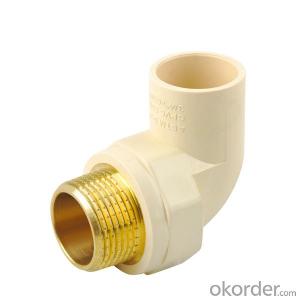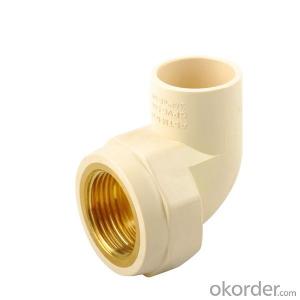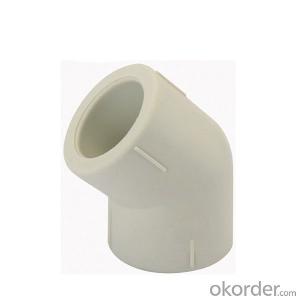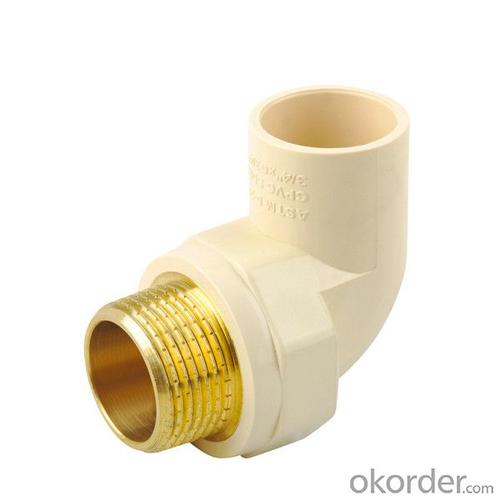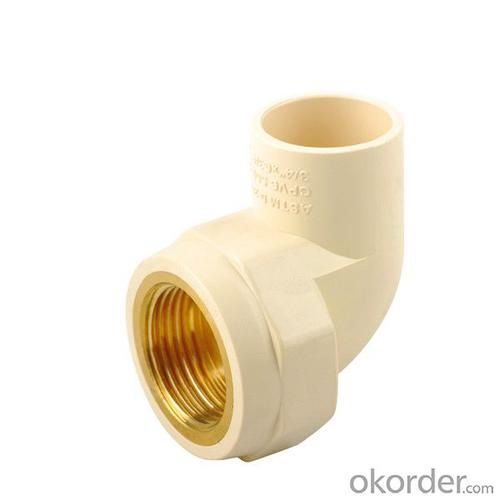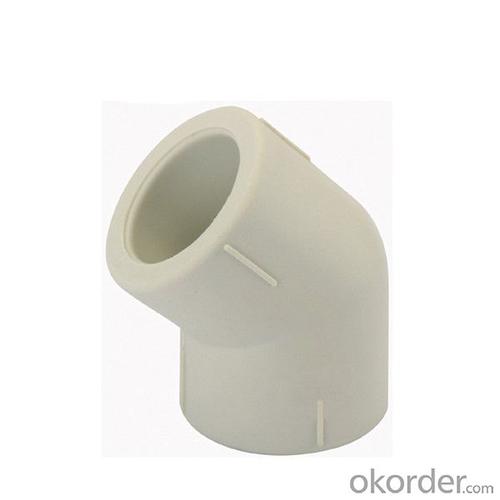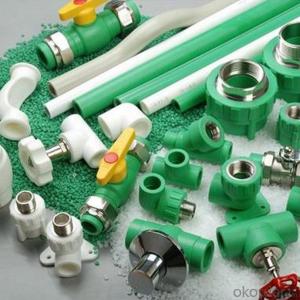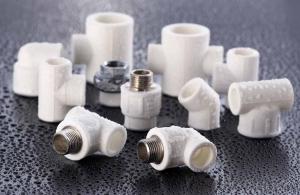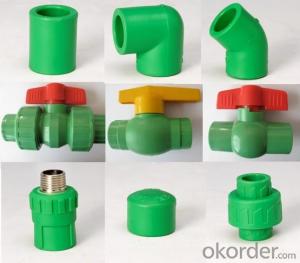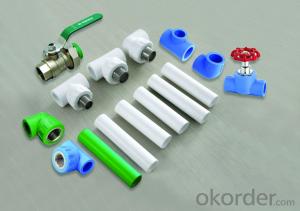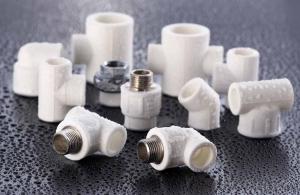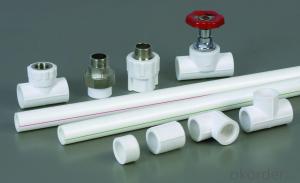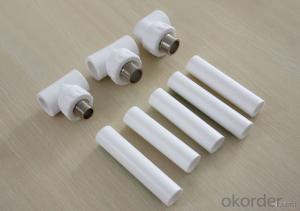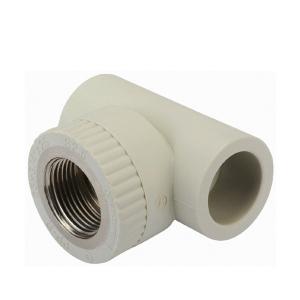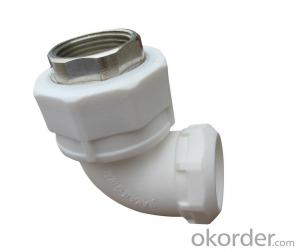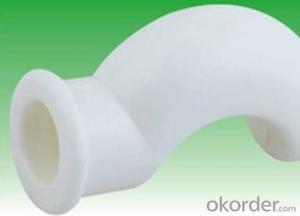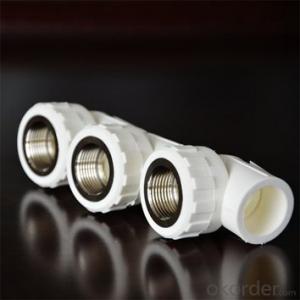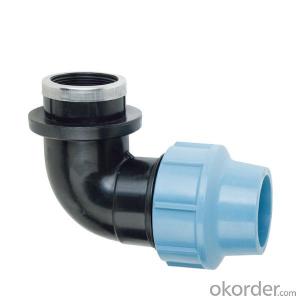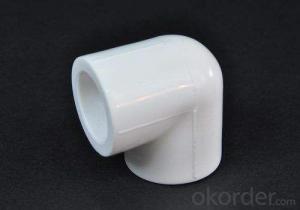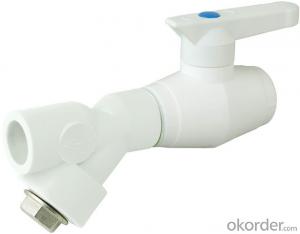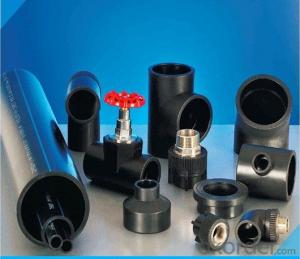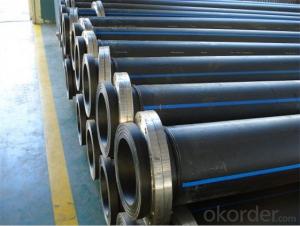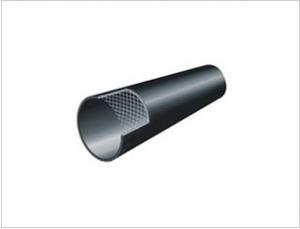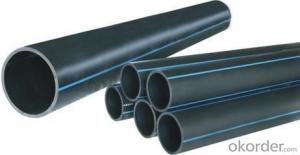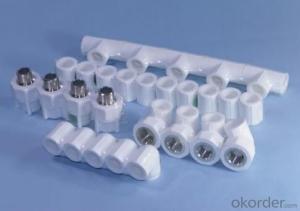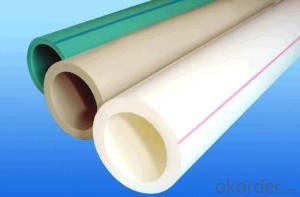1 1/4 PPR Elbow Fittings of Industrial Application from China
- Loading Port:
- Shanghai
- Payment Terms:
- TT OR LC
- Min Order Qty:
- 100 pc
- Supply Capability:
- 100000 pc/month
OKorder Service Pledge
OKorder Financial Service
You Might Also Like
Product Overview:
1) Cold / hot water supply facilities for public buildings
2) Food, chemical, electronic industry pipeline networks; Such as Pipeline networks for transporting all kinds of corrosive liquids
3) Drinking water production system pipeline networks; Such as Pure water and mineral water
4) Air conditioning facility pipelines
5) Pipeline networks for swimming pools
6) Pipeline networks for solar energy facilities
7) Agriculture and garden production transporting systems
Our Advantages:
1) Healthy, bacteriological neutral, conforming to drinking water standards
2) Resistant to high temperatures, good impact strength
3) Convenient and reliable installation, low construction expenses
4) Excellent heat-insulation property from minimum thermal conductivity
5) Lightweight, convenient to transport and handle, good for labor-saving
6) Smooth inner walls reduce pressure loss and increase flow speed
7) Sound insulation (reduced by 40% compared to galvanized steel pipes)
8) Recyclable, environment-friendly, accords with GBM standards
Product Description:
Pressure | Size(mm) | Pressure | Size(mm) |
PN1.25MPA | 20*2.0 |
PN1.6MPA | 20*2.3 |
25*2.3 | 25*2.8 | ||
32*2.9 | 32*3.6 | ||
40*3.7 | 40*4.5 | ||
50*4.6 | 50*5.6 | ||
63*5.8 | 63*7.1 | ||
75*6.8 | 75*8.4 | ||
90*8.2 | 90*10.1 | ||
110*10.0 | 110*12.3 |
Product Show:
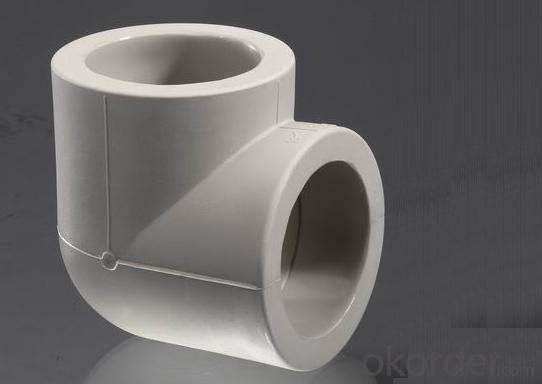
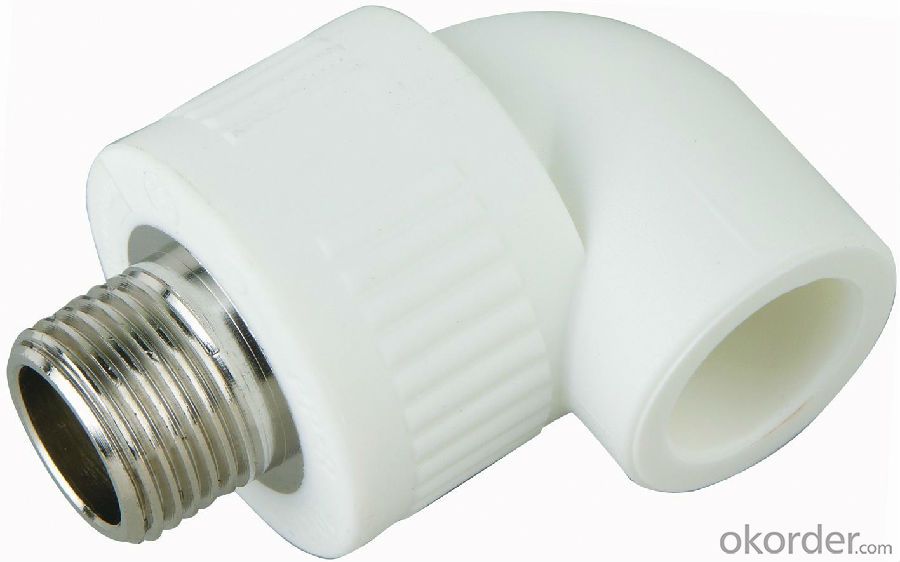
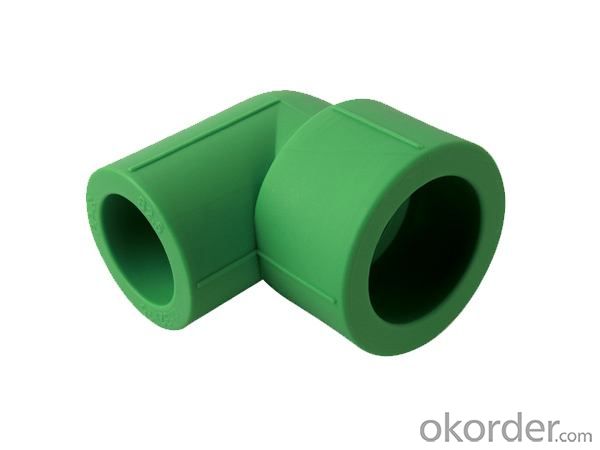
Product Feature:
1. High Temperature Resistance: the maximum sustained working temperature is up to 70°C , the maximum transient temperature is up to 95°C
2. Heat Preservation: low thermal conductivity which is only 1/1500 of brass pipe, and 1/250 of steel pipe
3. Non-toxic: no heavy metal additives, would not be covered with dirt or contaminated by bacterium
4. Corrosion Resistance: resist chemical matters and electron chemical corrosion
5.High Flow Capacity: smooth interior walls and low friction result in low flow resistance and high volume
6. Excellent Flexibility: can be supplied in coil
7. Low Installation Costs: light weight and ease of installation can reduce installation costs
8.Recycled and Environment-friendly
- Q: Are plastic pipe fittings compatible with other plumbing materials?
- Yes, plastic pipe fittings are generally compatible with other plumbing materials. However, it is important to ensure that the specific types of materials being used together are compatible and suitable for the intended application. It is recommended to consult with a professional plumber or refer to manufacturer guidelines for proper compatibility and installation.
- Q: Can plastic pipe fittings be used for industrial cooling systems?
- Yes, plastic pipe fittings can be used for industrial cooling systems. Plastic pipe fittings are often made from durable materials like PVC or CPVC which can withstand the temperature and pressure requirements of cooling systems. These fittings are resistant to corrosion, lightweight, and easy to install, making them suitable for various industrial applications including cooling systems.
- Q: Are plastic pipe fittings suitable for use in breweries and distilleries?
- Yes, plastic pipe fittings can be suitable for use in breweries and distilleries. However, it is important to ensure that the plastic materials used are specifically designed and approved for contact with food and beverages. Additionally, regular maintenance and proper cleaning procedures should be followed to ensure the integrity and safety of the fittings in these environments.
- Q: Are plastic pipe fittings easy to remove?
- Yes, plastic pipe fittings are generally easy to remove. They are designed to be easily installed and uninstalled without requiring specialized tools or excessive force.
- Q: How to connect the steel tube and the steel tube?
- Characteristics of electric fusion welding:The electric heating welding technology is easy to construct and quick to implement. It can be used for welding and weldingThe welding reliability is good, and the strength and density are better than other connection methodsKeep the inner wall of the pipe smooth, without affecting the flow area
- Q: Are plastic pipe fittings resistant to water hammer?
- Yes, plastic pipe fittings are generally resistant to water hammer.
- Q: Can plastic pipe fittings be used for waste disposal systems?
- Yes, plastic pipe fittings can be used for waste disposal systems. Plastic pipe fittings are commonly used in modern plumbing systems for their durability, flexibility, and resistance to corrosion. They are suitable for both residential and commercial waste disposal systems, providing a reliable and long-lasting solution.
- Q: What are the different sizes of plastic pipe fittings available?
- The sizes of plastic pipe fittings can vary depending on the specific application and type of fitting. Common sizes range from ½ inch to 2 inches in diameter, but larger sizes can also be found for industrial and commercial purposes.
- Q: Can plastic pipe fittings be used for dairy processing plants?
- Yes, plastic pipe fittings can be used for dairy processing plants as long as they meet the necessary food-grade requirements and comply with the industry standards for hygiene and safety.
- Q: How do plastic pipe fittings compare to PVC pipe fittings?
- Plastic pipe fittings and PVC pipe fittings are essentially the same thing. PVC (Polyvinyl Chloride) is a type of plastic commonly used in the manufacturing of pipe fittings. Therefore, there is no significant difference between the two in terms of material or performance, as both are made of plastic and designed to connect pipes.
Send your message to us
1 1/4 PPR Elbow Fittings of Industrial Application from China
- Loading Port:
- Shanghai
- Payment Terms:
- TT OR LC
- Min Order Qty:
- 100 pc
- Supply Capability:
- 100000 pc/month
OKorder Service Pledge
OKorder Financial Service
Similar products
Hot products
Hot Searches
Related keywords
